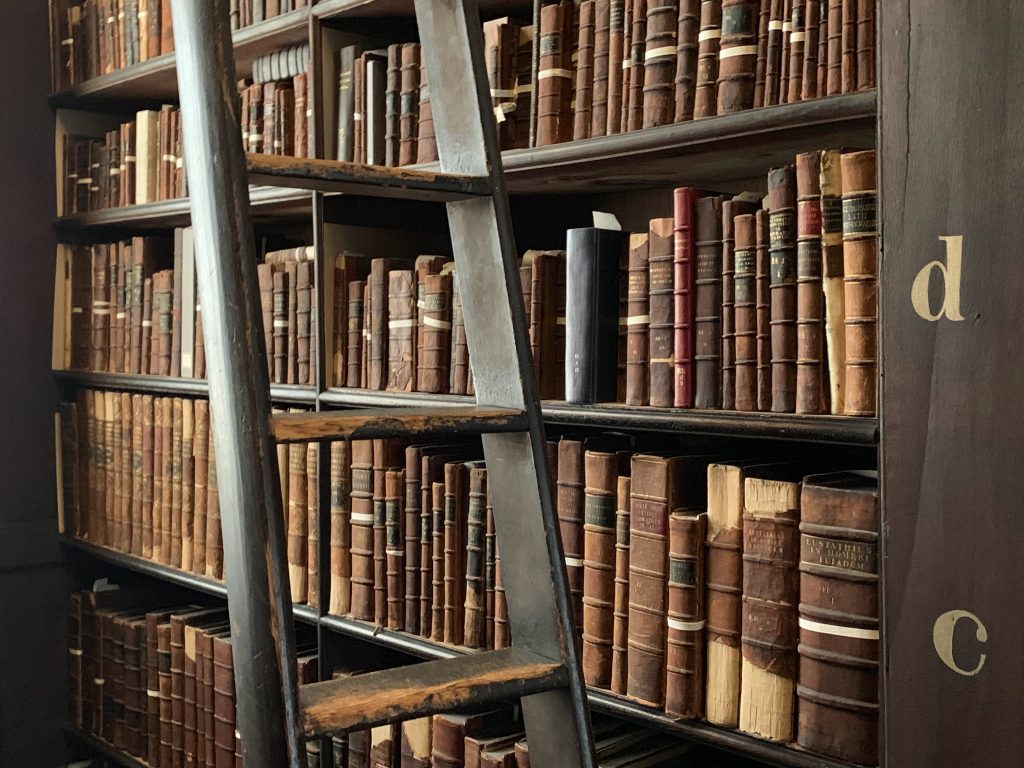“All of time and space, everything that ever happened or ever will, where do you want to start?”
The Doctor in „The Eleventh Hour“ (NW S05E01)

The world is exciting and seemingly almost infinite, because there is so much to discover. How could we ever see everything, experience everything, understand everything that our universe offers us? We are so tiny compared to what surrounds us and yet that is our desire: to experience the whole world and make it accessible to us. But how should that be even remotely possible? How can we get to know even a fraction of what surrounds us? The answer is simple: stories. The world is full of stories. No one can avoid them. They are read to us in our childhood, we read them ourselves or listen when others tell them to us. There are almost as many ways to tell the stories as there are stories themselves, the most popular today seeming to be films and series that allow you to perceive the world through other eyes, or indeed other worlds altogether. There is unlimited potential in this. Stories make the world seem even bigger and yet bring it within reach.
“There’s always room for a story that can transport people to another place.”
J.K. Rowling
And whether it is about reality or not is perhaps not so crucial in the end, because no matter what it is about, the stories influence us, allow us to take other perspectives, to learn something (whereby one probably learns more from some stories than from others), we observe how people (or aliens, androids, elves, dwarves etc.) outgrow themselves or fail. We see in which direction society might develop or what might await us behind the borders of our reality. Fiction and hopes and fears are sometimes close together….
And therefore they are not simply “just” stories. There is almost always so much more to them than what we tell. They shape us and our view of the world, they are the manifestation of what we wish for or what we fear. We all have our own stories that we shape. We are responsible for them ourselves, but in doing so we are not on our own: We use the stories we know and orient ourselves to them.
“We’re all stories in the end.”
The Doctor in The Big Bang (NW S05E13)
In the process, the stories offer an almost unimaginable depth, they show us the world and its options, they are ultimately nicely packaged science, philosophy and theology foremost among them. Who would notice that everyone who has seen Star Trek or Star Wars has already been confronted with the theories of transhumanism? Who would see a connection to Christology in the resurrection of Gandalf or the self-sacrifice of Aslan? We all deal with the most complicated problems of the humanities all the time, just without always realising it. And we do so voluntarily. Because the stories entertain us, activate our imagination, get us talking to each other and, at a very low level, they convey messages. And these messages are what we want to talk about here. We want to reflect on the rich fund of stories that we encounter in the world of science fiction and fantasy and try to reveal the messages, their philosophy, their theology.
“We understand everything in human life through stories.”
Jean-Paul Sartre
Of course, it is clear that an important characteristic of stories is that they can and must be interpreted, which is why the thoughts we present here are not necessarily the last word in wisdom and it is equally possible to understand the stories in a completely different way. Our main aim is therefore also to stimulate our own reflection and discussion and to give a little impetus to this reflection.
Perhaps you can compare this blog a little with the “Hitchhiker’s Guide To The Galaxy”. Lots of useful tips to help you navigate the mind-world of fantasy and sci-fi stories, but you still have to do the travelling yourself. So grab your towel and get a push into the depths and variety of all the stories that can be found out there.
On that note, so long and thanks for all the fish!
